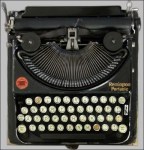 A Black Americanism is a word or phrase that comes from black American English. It is a kind of Americanism. Some are found mainly just in Black English, some have crossed over into Standard English. Some you might think are Standard English but if you look them up in a dictionary, they are not there!
A Black Americanism is a word or phrase that comes from black American English. It is a kind of Americanism. Some are found mainly just in Black English, some have crossed over into Standard English. Some you might think are Standard English but if you look them up in a dictionary, they are not there!
I divide Black Americanisms into three kinds according to their relationship to Standard English: the obvious, the subtle and the naturalized (the words in red are those that I have probably used on this blog):
1. The obvious: those that are so clearly black that most blacks readily drop them from their speech or writing when the circumstance demands Standard English, like at work or school. Many of these are seen as slang or improper English by both blacks and whites.
Examples:
you is, she pretty, phat, hate on, done gone, I seen, she do, saditty, colorstruck, player (ladies’ man), to front (pretend), play someone, nigga, good hair, check one’s self, bougie, y’all, get busy, ho, conversate, might could.
2. The subtle: those that might seem to be Standard English but in fact are not. I thought all of these were Standard English till I looked them up:
Examples:
wigger, anyways, inside of, all them, most everyone, dig (= understand), be into, whip out, lighten up, hooked on, go off on, get with it, get real, get it together, get one’s drift, get a clue, go broke, knock yourself out, to sweat someone, take the cake.
3. The naturalized: those that have crossed over into some level of Standard English. Most crossed over into white American slang, especially by way of jazz and hip hop, then into more formal levels of American English. From there some spread overseas.
“Informal” means it is all right for spoken English and for some kinds of writing, like for magazines, blogs and newspapers, but not, say, for government reports. “Vulgar” means not to be used in mixed company.
Examples:
- Americanisms:
- Informal North American English: hooker, redneck, man (exclamation), dis, crib, Oreo (person), dude, to be strung out on something, jive, nappy, white trash, hustle (trick), knock up (get pregnant), two-bit, straight up, hood (= neighbourhood), whup.
- Written North American English: down-home
- No longer dialect:
- Vulgar World English: dick, pussy.
- Informal World English: okay, groovy, bad mouth, sweet talk, cool, be hip, vibes, yeah, not my bag, max, psych out, gig, funky, Mickey Mouse (adj), be with it, be wired, wing it, working girl, looker, get a move on, every which way, fab, come (= orgasm), put-down, goner, laid-back, quickie, sure enough, blow one’s mind, for real, bust (= burst), uppity, yo, cuss.
- Written World English: go with (= date), jazz, banana, bogus, dead (no emotion), up on it, set-up (trick, frame), like crazy, lily-white, come down on, pimp, crying shame, crybaby, check it out, go along with, greens, two-faced, uh-uh.
I try to write in world English for this blog, so the World English ones are fine. All the rest are dialect: Americanisms, black or otherwise.
Sources: “Concise Oxford English Dictionary” (2006), Clarence Major: “Juba to Jive” (1994).
See also:


